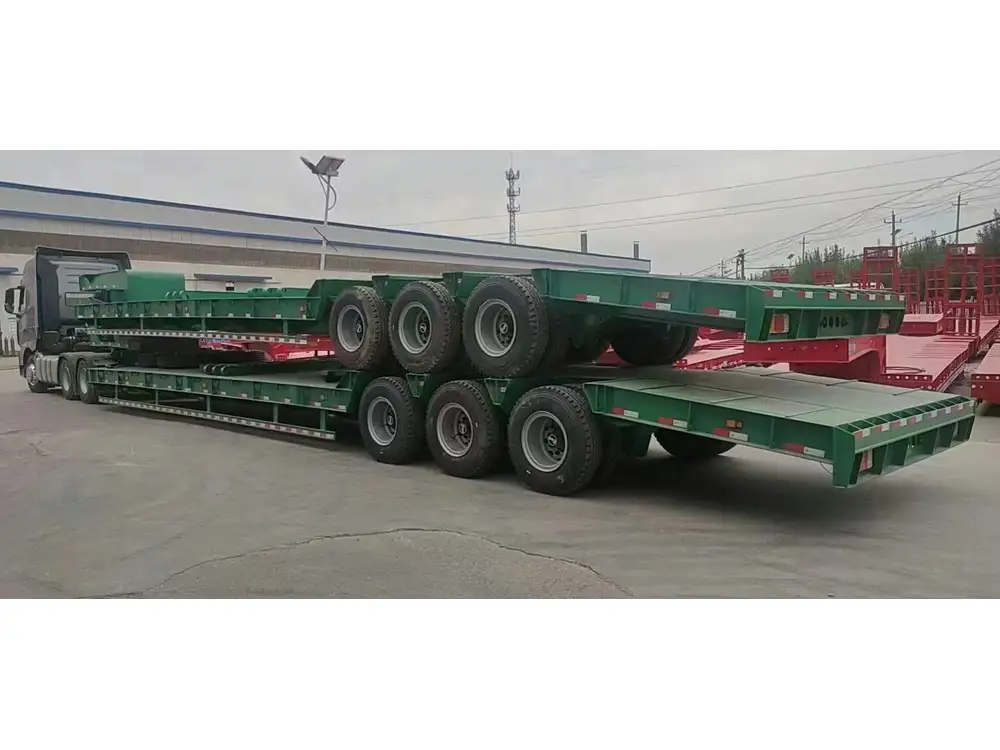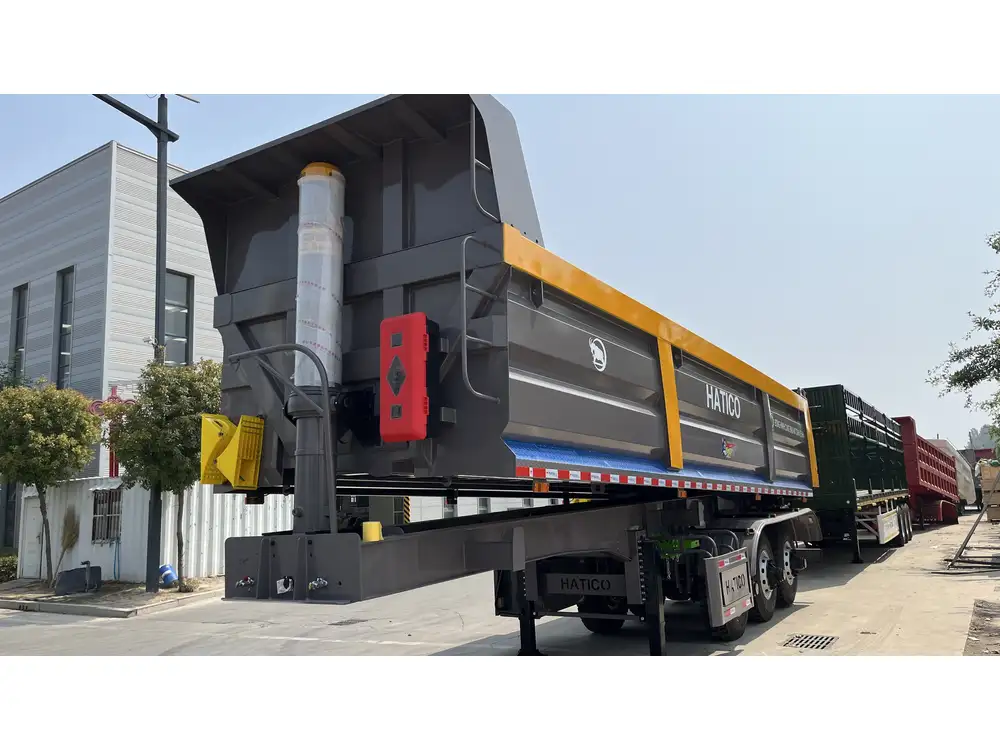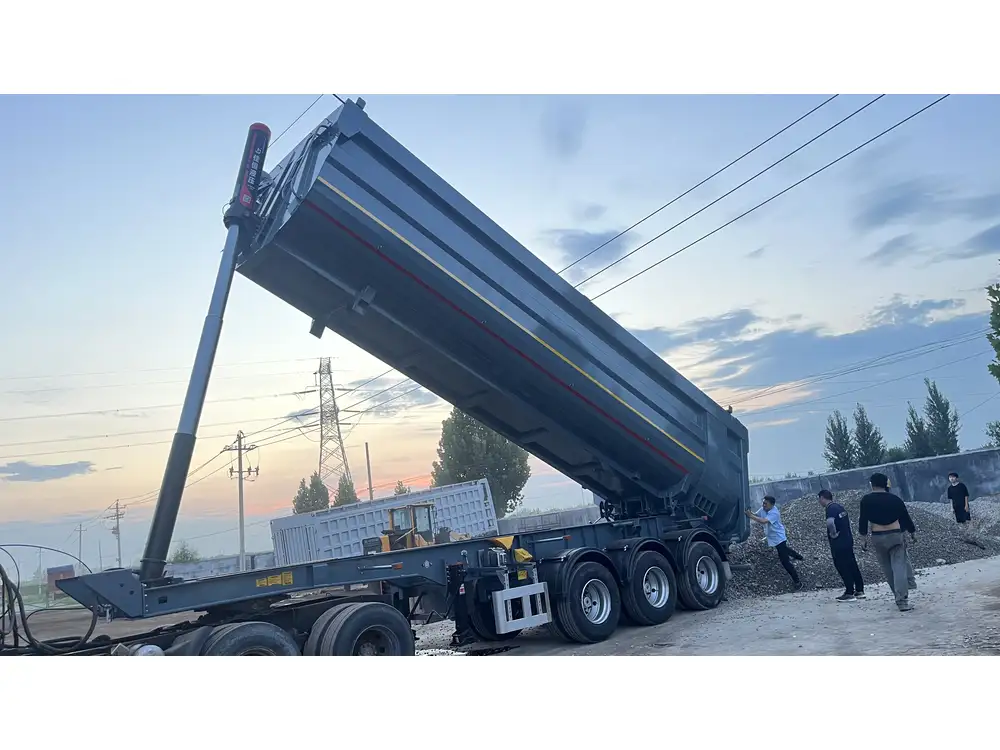Dump trailers are indispensable in various sectors, from construction to agriculture, providing a reliable way to transport and dispose of materials. However, one aspect that is often overlooked is the hydraulic fluid that powers these trailers. Selecting the appropriate hydraulic fluid significantly impacts not only the efficiency of the system but also its longevity, making this a critical consideration for manufacturers and operators alike. In this in-depth guide, we will explore everything you need to know about choosing the right hydraulic fluid for your dump trailer, ensuring optimal performance and reliability.
Understanding Hydraulic Fluids
What is Hydraulic Fluid?
Hydraulic fluid is a specialized liquid used in hydraulic systems to transmit power. The hydraulic system’s performance heavily relies on the quality and type of fluid used, which serves several critical functions:
- Power Transmission: Facilitates the transfer of energy.
- Lubrication: Reduces wear by lubricating moving parts.
- Cooling: Dissipates heat generated during operation.
- Corrosion Protection: Prevents rust and damage to system components.

Types of Hydraulic Fluids
The market offers a plethora of hydraulic fluids, each tailored for specific applications, which can be broadly categorized as follows:
| Fluid Type | Description | Common Applications |
|---|---|---|
| Mineral Oil-Based | Derived from refining crude oil; includes additives. | General-purpose hydraulic systems. |
| Water-Based | Includes water-glycol solutions; less flammable. | Environments requiring fire safety. |
| Biodegradable | Made from vegetable oils or synthetic esters; eco-friendly. | Environmentally sensitive areas. |
| Synthetic | Engineered fluids; offer superior performance. | High-performance machinery. |
Selecting Hydraulic Fluid for Your Dump Trailer
Factors to Consider
When choosing the right hydraulic fluid for your dump trailer, several factors must be considered to optimize performance and reliability.

1. Compatibility with System Components
Before selecting hydraulic fluid, ensure compatibility with the materials used in your dump trailer’s hydraulic system. Common materials include:
- Seals: Certain fluids can degrade rubber or polyurethane seals.
- Hoses: Confirm that the fluid does not swell or deteriorate hoses.
2. Viscosity Grade
Viscosity indicates a fluid’s resistance to flow. Choosing the appropriate viscosity grade ensures that your hydraulic system can operate effectively under varying temperatures:
- Cold Temperatures: Low-viscosity fluids are required.
- High Temperatures: Higher viscosity fluids help maintain pressure.
Refer to the manufacturer’s specifications for the ideal viscosity grade, typically denoted by a number (e.g., ISO 32, ISO 46).
3. Operating Environment
Consider the operational environment of your dump trailer. Factors like ambient temperature, humidity, and exposure to contaminants can influence the choice of hydraulic fluid:
- Extreme Conditions: In hot climates, consider fluids with high thermal stability.
- Contaminated Environments: Water-based fluids may dissipate heat better but can be prone to contamination.

4. Fire Resistance
In environments prone to fire hazards, consider using a fire-resistant hydraulic fluid. Water-containing fluids (water-glycol) or non-flammable synthetic fluids can offer added safety.
Hydraulic Fluid Standards
It’s essential to choose fluids that meet specific industry standards. Some commonly referenced standards include:
- ISO 6743: Establishes classification for hydraulic fluids.
- DIN 51524: Specifies requirements for different classes of hydraulic fluids.
- API: Provides performance criteria for fluids in various applications.
Check manufacturer specifications to ensure compliance with standards relevant to your operation.
Common Hydraulic Fluids Used in Dump Trailers
Let’s take an in-depth look at some of the most common hydraulic fluids suitable for dump trailers, considering their properties, advantages, and potential drawbacks.

1. Mineral Oil-Based Fluids
Description: These fluids are the most commonly used in hydraulic systems. They are derived from crude oil and blended with various additives to enhance performance.
Advantages:
- Good lubrication properties.
- Widely available and cost-effective.
- Offers stable viscosity across a range of temperatures.
Drawbacks:
- Environmental hazards if leaked.
- Lower thermal stability in extreme conditions.
2. Water-Based Fluids
Description: Composed of water and glycols or other additives, these fluids are designed primarily for safety and cooling properties.
Advantages:
- Less flammable, providing better safety in risky conditions.
- Excellent heat absorption.
Drawbacks:
- Lower lubricating properties compared to mineral oils.
- Prone to microbial growth, which can degrade fluid quality.
3. Biodegradable Fluids
Description: These fluids are derived from renewable resources, such as vegetable oils or synthetics designed to break down naturally.
Advantages:
- Environmentally friendly; less harmful in the event of spills.
- Good lubrication and seal compatibility.
Drawbacks:
- Often more expensive than conventional fluids.
- May have decreased performance in extreme conditions.

4. Synthetic Fluids
Description: Synthetic fluids are engineered for superior performance and tailored for specific applications.
Advantages:
- Excellent temperature stability and low volatility.
- High lubrication properties and long service life.
Drawbacks:
- More expensive than other hydraulic fluids.
- May require special handling and disposal procedures.
Maintenance Tips for Hydraulic Fluids
To ensure long life and optimal performance in your dump trailer’s hydraulic system, regular maintenance and checks are crucial. Below are essential maintenance practices:
1. Regular Fluid Checks
- Visual Inspection: Routinely check fluid levels and quality.
- Contamination Testing: Test for cloudiness or discoloration indicative of contamination.

2. Change Intervals
Adhere to manufacturer-recommended fluid change intervals or set a maximum operating hour criteria to ensure fluid integrity.
3. Keeping Components Clean
- Filter Checks: Frequently inspect and replace hydraulic filters to eliminate contaminants.
- Reservoir Cleaning: Periodically clean the hydraulic fluid reservoir to maintain fluid purity.
4. Monitor Performance
Keep an eye on performance metrics such as hydraulic pressure and response times. Any irregularity may suggest fluid degradation or contamination.

Troubleshooting Common Hydraulic Issues
If you encounter issues with your dump trailer’s hydraulic system, it’s vital to know potential symptoms and solutions:
| Symptom | Possible Cause | Solution |
|---|---|---|
| Slow or No Response | Low hydraulic fluid level | Check and refill the fluid |
| Overheating | Contaminated or inadequate fluid | Change fluid or clean the system |
| Unusual Noises | Cavitation or low lubrication | Check fluid level and inspect components |
| Leakage | Damaged seals or hoses | Replace faulty components |
Conclusion
Selecting the right hydraulic fluid is pivotal in maintaining the efficiency and longevity of your dump trailer. By understanding the types of hydraulic fluids, considering essential factors such as compatibility, viscosity, and operating conditions, and adhering to regular maintenance routines, you ensure that your hydraulic system operates effectively under varying circumstances. As a dump trailer manufacturer, investing time in educating customers about proper fluid selection will foster trust and enhance operational success. Remember, the right choice can make all the difference in the performance of your equipment, turning potential headaches into seamless operations.



